MEF has made a committment to these people to try to alleviate the conflict so both species can live, thrive and survive. We visited Habarana as part of MEF's mission.
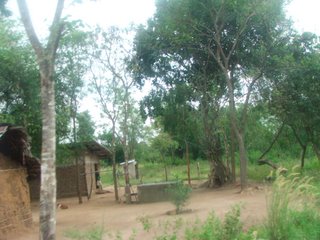
As we pulled up my thoughts were on the obvious poverty here. It seemed these people had nothing. I was wrong.
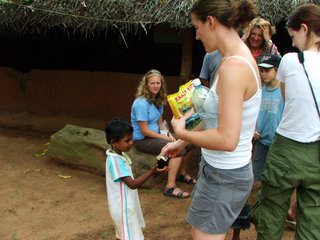
We bought food and candy for the kids. The food was taken by the local women to prepare a meal for the volunteers. Homes were modest. Concrete floors. They had water available via a pump outside the house. Windows, but of course, no glass. Pictures cut from magazines decorated the insides of the homes. There was a local power grid, so electricity was available.
MEF provided bells to be hung from a tree outside the home in order to ward off wandering elephants and to warn the neighbors. Look closely. You can just see one in the upper right half of the picture.
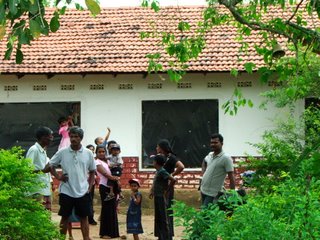
The villagers proudly led us to their Montessori school.
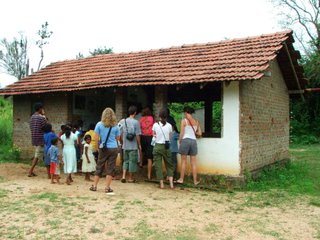
Dirt floor. Roughed out wooden desks. They couldn't afford an actual blackboard, so they used a sheet of plywood painted black. But, they were proud of what they had. MEF had brought some bags of cement for the floor, but they weren't enough. I kicked in enough for the rest of the floor. Maybe $20.
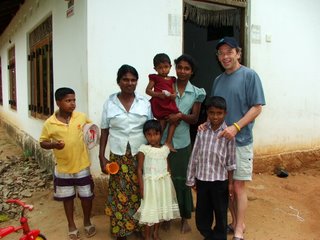
In the end my initial impressions were wrong. Sure, by our standards, they would seem to be poor. But, they were happy and healthy. The kids were fit, curious and energetic. The locals were fairly self-sufficient. They didn't seek handouts, but were grateful for the assistance. It turns out they actually grew crops for sale rather than consumption. This means there was an outside source of income.
They valued education, even for the girls, which is a huge deal in developing countries. When the females receive education they are more likely to enter the workforce at some level than to be married off at 14 with six kids by 18. With the new source of income they are able to save and improve the family's quality of life. Also, with education women tend to have smaller families, which in a generation or so leads to less need for more land to grow crops. Smaller croplands can mean less intrusion on elephant habitat, smaller, healthier, more educated families. It's happened before in other countries and is happening now in many (see India).
So that was Habarana.


No comments:
Post a Comment